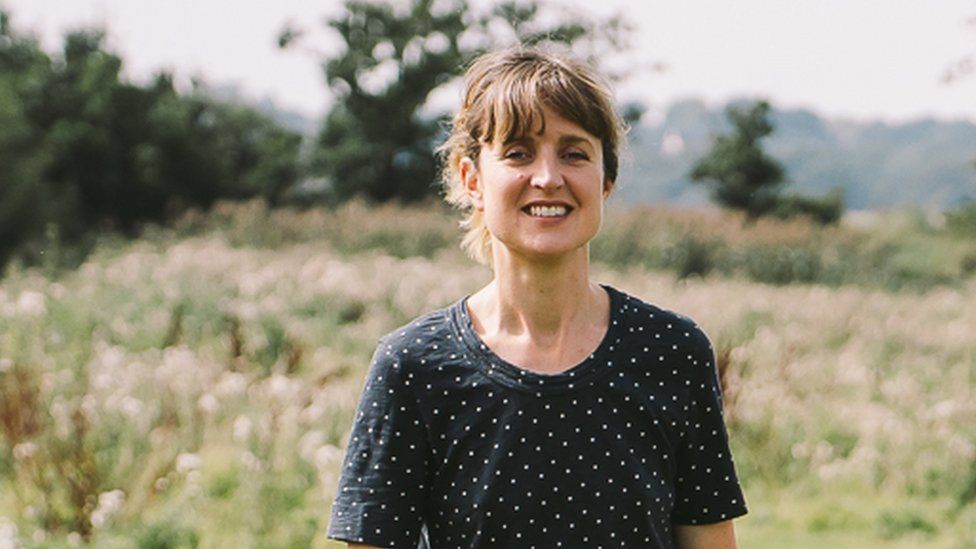Woodbridge mum's anti-smartphone drive a shock success
- Published

Daisy Greenwell hopes the Smartphone Free Childhood movement will prevent children from owning the devices before secondary school
A Suffolk mum has shared her surprise after accidentally starting a national campaign to ban smartphones for children under 14.
Daisy Greenwell, 40, from Woodbridge, began Smartphone Free Childhood with her friend Clare Fernyhough.
What started as a small WhatsApp group quickly amassed thousands of parents from across the UK.
Mrs Greenwell said: "I wasn't intending to start a campaign at all. It just went bananas."
According to Ofcom research, 98% of 12 to 15-year-olds owned a smartphone in 2022
The mum-of-three recalled sharing concerns with Mrs Fernyhough over children's smartphone use, and set up a WhatsApp group for parents to talk about the issue.
An Instagram post, external promoting the chat went viral and the group oversubscribed the 1,000-person capacity within 24 hours.
"We invited people to start groups in their areas," Mrs Greenwell continued.
"About 50 groups sprung up in 10 minutes across the country, from Scotland to Cornwall."
Mrs Greenwell added that she did not want her children to feel "ostracised" by not having a phone, but that social influence has a big part to play.
"If you can get a class WhatsApp group to agree together to not get our kids a phone because they don't need one, then the problem is eliminated overnight because there's none of that peer pressure," she said.
Smartphone Free Childhood suggests smartphone alternatives, such as phones without internet or app access
Ofcom reported, external that 87% of three to four-year-olds went online in 2022, while 20% of them owned a smartphone.
"There's scientific evidence that it's extremely damaging for developing brains," Mrs Greenwell said.
"The younger a child gets a mobile phone, the higher their rate of mental illness later on."
She hoped the movement would encourage parents to not give their child a smartphone until the age of 14, with no social media access until 16 years old.
Mrs Greenwell said she recognises the need to reach children outside of the home, recommending alternative products to keep in contact, such as phone models without internet and app access, or location tracking devices such as Apple's AirTag.
Her newly launched online platform, external provides parents and guardians with the tools needed to speak openly to others about the issue, as well as advice on approaching schools to help introduce a phone-free environment.
Follow East of England news on Facebook, external, Instagram, external and X, external. Got a story? Email eastofenglandnews@bbc.co.uk , externalor WhatsApp 0800 169 1830
Related Topics
- Published8 February
- Published30 January
- Published7 April 2021
- Published6 February 2017